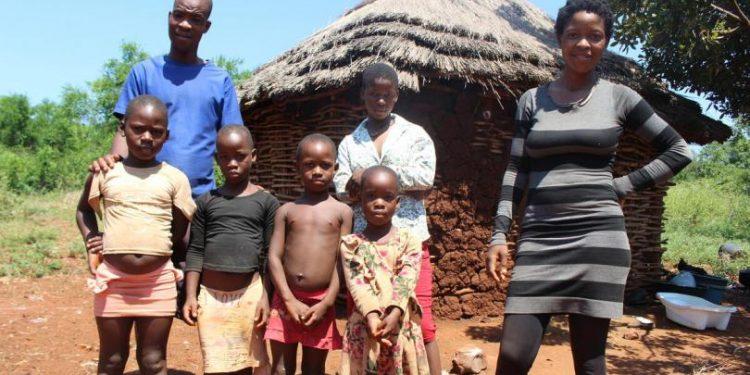Africa-Press – Eswatini. A recession and acute food security in Eswatini have been forecast for the remaining months of 2022 and into early 2023. This as weather related shocks, high disease incidents and socio-economic shocks compounded by poor GDP growth continue to drive the food security landscape.
It does not matter who you approach these days in relation to the current economic situation. The response will be the same ‘’kuyabhedza and kubi” are the trending terms. According to the United Nations Office for the Coordination of Humanitarian Affairs, food insecurity analysis; the key drivers are as follows.
Firstly, the high commodity prices the price of inputs have increased way above the five-year average as a result of the continued Russia Ukraine war that has affected the supply chain of fuel in global markets.
Secondly, loss of employment due to Covid 19 impacts has increased the number of unemployed people in the country. This has compromised access to basic food commodities for the poor.
Thirdly, outbreak of Covid 19 affected negatively on the livelihoods of households through the mitigation actions taken to prevent the spread of the virus i.e., partial lockdowns. The impact of the pandemic still lingers on.
The United Nations report goes on to articulate that “the overall food insecurity situation can be attributed to the continuing impacts of the Covid 19 pandemic, following the containment and restriction measures that were put in place. As a result, households have not recovered and are still experiencing the effects of the measures, which negatively affected household’s livelihoods through loss of employment and increased the number of unemployed people in the country.”
The increased prices of basic food commodities largely influenced by the current hike in fuel prices which have escalated by 16% from E 18.55/litre to E 21.55/litre from March to June 2022. The petrol price now rests at E23.85/litre.
As fuel prices are a major determinant of food prices, food price trends are expected to continue increasing. Households in all urban areas and rural livelihood zones have experienced shocks in food access and stability as the food price inflation continues increasing.
Given the situation of high commodity prices and fuel price hikes, Eswatini is not getting much joy from its fiscal revenues and the highly unstable receipts from the Southern African Custom (SACU) receipts either.
The government depends on custom duties from SACU to finance almost half of its budget. An observation by the African Development Bank notes that “SACU’s expansionary fiscal policies and low revenues have widened the budget deficit. In 2020, existing challenges were magnified by the effects of the pandemic as crisis-related expenditures increased and revenues declined. Fiscal deficit reached an estimated 8.6% GDP in 2020, prompting the government to request international financial support. The International Monetary Fund (IMF) approved USD 110.4 million in emergency financial assistance under the Rapid Financing Instrument. The deficit for financial year 2021/22 was budgeted at 6.5% GDP, and was projected at 4.8% GDP in 2022/23.
Other contributors to Eswatini’s GDP are aagriculture which accounts for 6.5% of GDP. Its products include sugarcane, corn, cotton, citrus, pineapples, cattle, and goats. Industry accounts for 45% of GDP and included soft drink concentrates, coal, forestry, sugar processing, textiles, and apparel.
The International Monetary Fund projects that “due to supply chain constraints, elevated food prices and a weakening domestic currency, inflation increased from 3.9% in 2020 to 4.3% in 2021. It is expected to rise to 4.7% in 2022 and 4.6% in 2023 due to increased commodity prices (especially oil).”
In an attempt to arrest the high commodity prices at an international level, military delegations from Ukraine, Russia and Turkey convened a meeting with United Nations officials. The objective was to broker a deal as Russia’s invasion of Ukraine raised world food prices for grain, cooking oil, fuel and fertilizer. According to diplomats, elements of the plan being discussed include Ukrainian ships escorting grain ships in and out of the mined harbor waters of the largest Black Sea port of Odessa.
Speaking on the initiative in 13 July 2022, the UN Secretary General, Antonio Guterres said “We are working really hard but we still have more to do. A lot of people are talking about it, we rather try to do it.”
Ukraine and Russia are key global wheat suppliers, with Russia also a major fertilizer exporter and Ukraine a major corn and sunflower oil producer. The Russian invasion and Ukraine’s maritime blockade halted exports, with dozens of ships and more than 20 million tons of grain stranded in the port of Odessa.
On 22 July 2022, Kyiv and Moscow eventually signed the deal brokered by the Turkish government and the United Nations. Under the agreement Russia promised not to attack grain vessels in the Black Sea region. If Russia keeps to the deal it has signed with Ukraine allowing for the resumption of grain exports, much-needed relief will be provided to importing countries, including many in Africa.
According to Wandile Sihlobo a Senior Fellow in the Department of Agricultural Economics at Stellenbosch University. “The relief will be significant as Ukraine has roughly 22 million tonnes of grain (wheat, maize, sunflower seed and other grains) in silos. It has not been able to ship these to export markets because of Russia’s invasion, which disrupted infrastructure and the attacks on vessels transporting goods.”
The UN is also working to facilitate Russian grain and fertilizer exports, which Moscow says have been hampered by Western sanctions.
For More News And Analysis About Eswatini Follow Africa-Press







